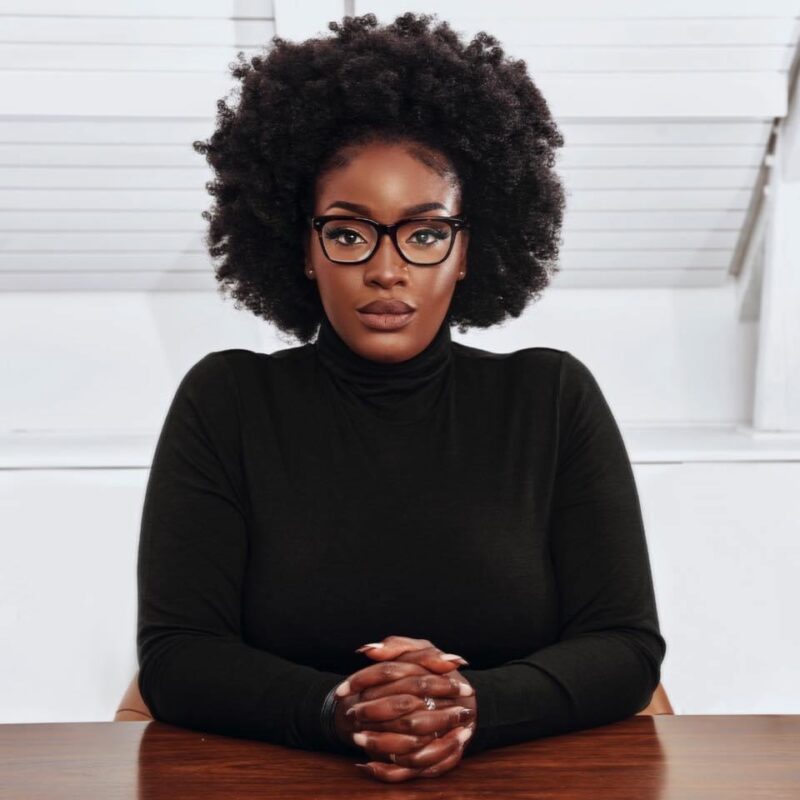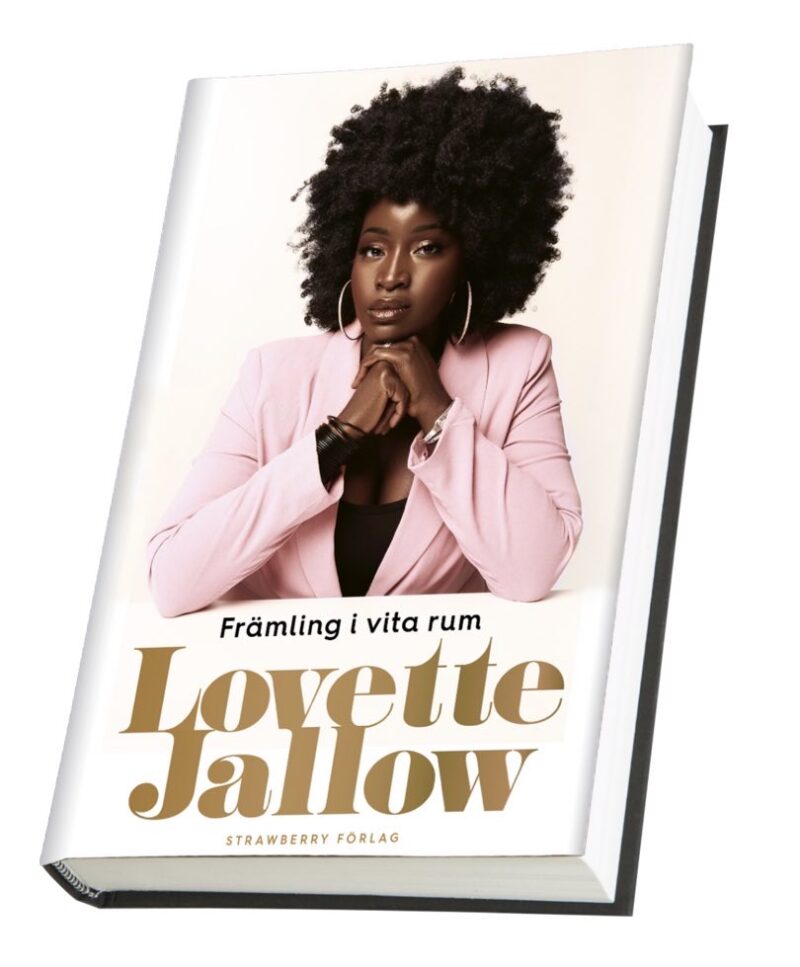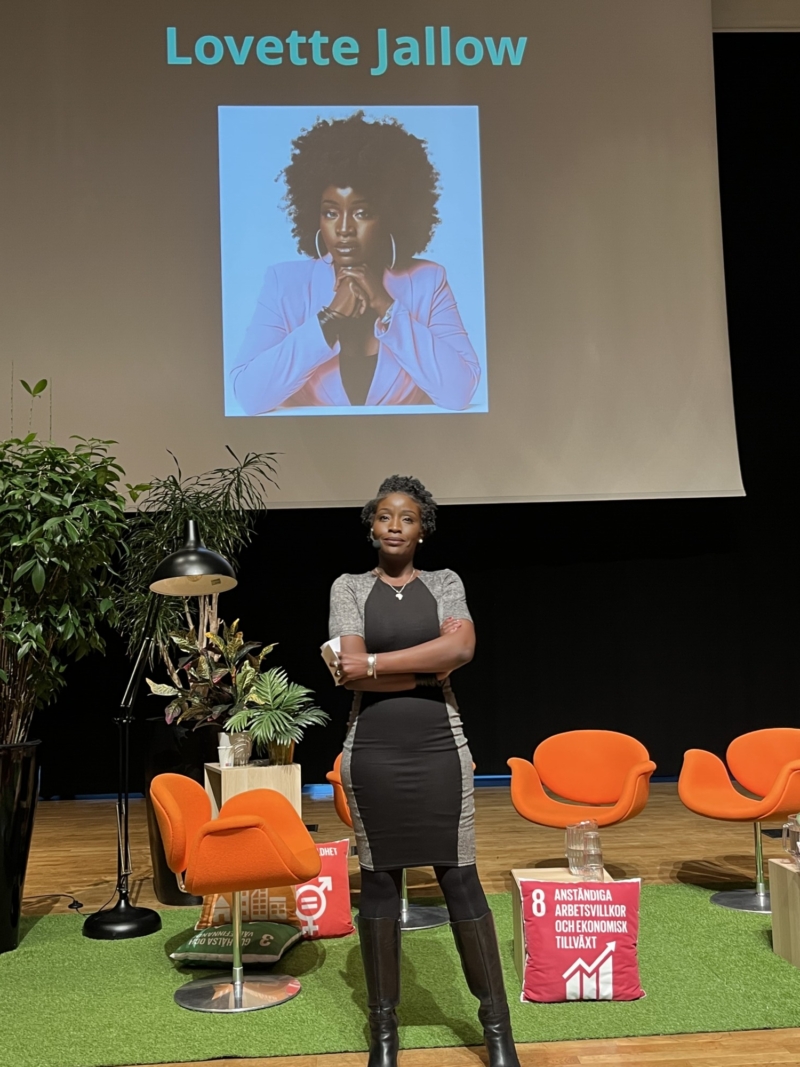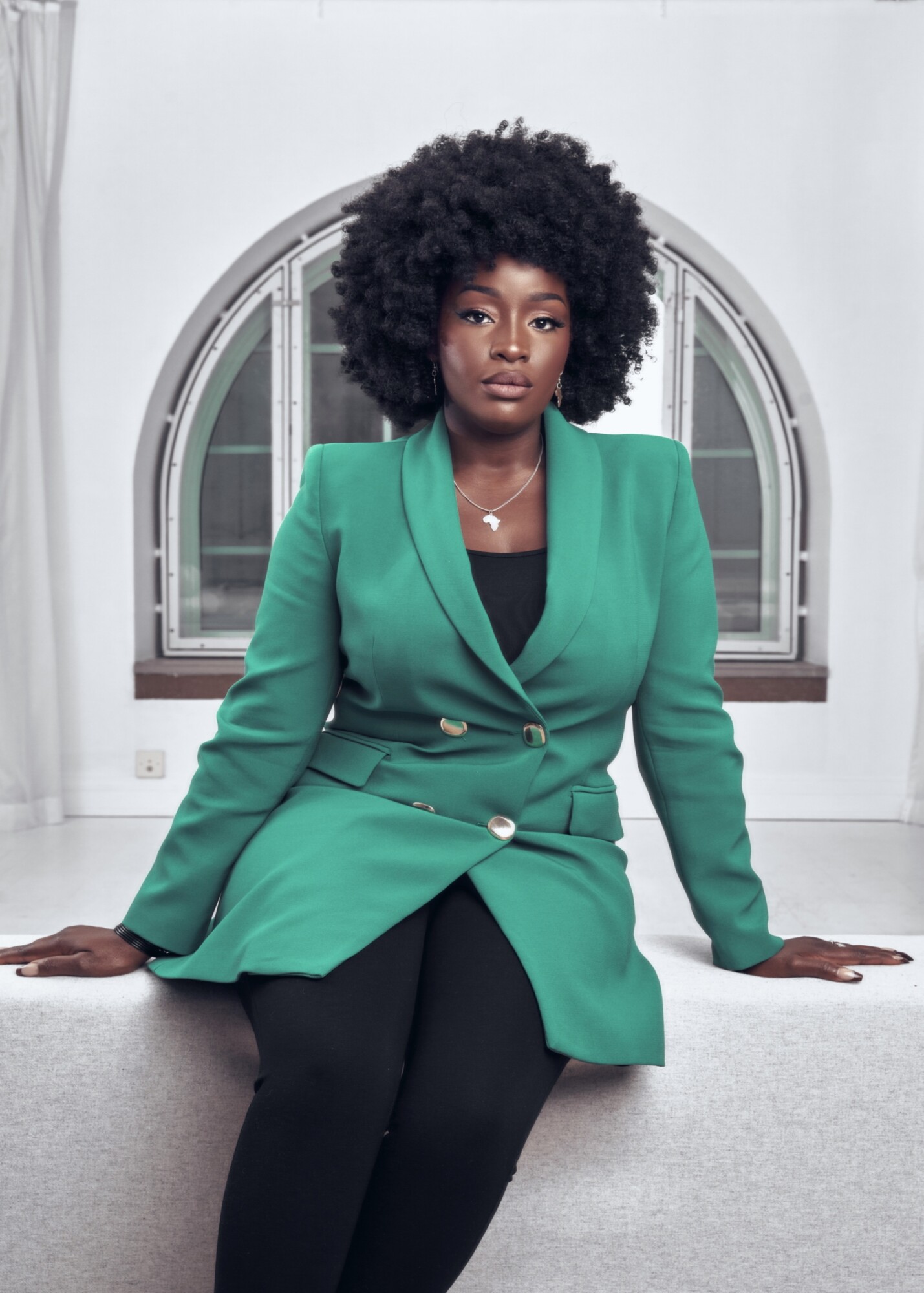Can Black Women Wear Natural Hair in Swedish Workplaces? My Story of Being Fired for Speaking Up
Why being fired for defending my natural hair led to founding a business and exposing systemic racism in Swedish corporate culture

Table of Contents
- My Experience: Hair Touching, HR Betrayal, and Being Pushed Out
- The Global Crisis of Black Hair Discrimination in the Workplace
- Why Sweden’s “Progressive” Image Makes This Worse
- White Women’s Tears as Workplace Weapon
- What HR Won’t Tell You: Legal Options Beyond Internal Reporting
- Reclaiming Power: From Forced Exit to Entrepreneurship
- What Companies Must Do: Beyond Performative Diversity
My Experience: Hair Touching, HR Betrayal, and Being Pushed Out
I vividly remember the discomfort of going into the workplace with my natural hair, only to face insensitive racialized remarks from colleagues and superiors. Power dynamics were at play, and it wasn’t uncommon for individuals to make unwelcome physical gestures towards my hair, tugging and pulling at it without regard for my boundaries or consent.
One particularly disheartening incident involved a white female colleague who grabbed at my natural hair. When I politely asked her to refrain from doing so, she reacted with upset, unable to comprehend why her actions were inappropriate.
In an attempt to educate her, I sent an email explaining the historical context and significance of my hair to Black identity, along with links to relevant articles. However, instead of fostering understanding, my effort led to being reprimanded by HR for upsetting her.
These experiences underscore the pervasive nature of power dynamics and microaggressions in the workplace, taking a toll on individuals who simply seek to present themselves authentically.
At that time, HR sided with her, making excuses for her actions and emphasizing her curiosity over my humanity and rights to my own body. Despite ongoing discussions about consent (samtycke) and workplace lectures on the topic in Sweden, as a Black woman, I was not afforded that respect.
She claimed that my significant social media platforms and voice made her scared of me, a tactic white women often use and weaponize in the workplace against Black and Brown people. HR prioritized her comfort above mine and also added that I couldn’t speak on this matter publicly.
Eventually, I was let go with a severance package I used to start my own business and forced to sign a non-disclosure agreement (NDA) to prevent me from speaking about the incident. They forgot my law background, their image of me could ever only align with stereotypes.
That NDA also stops applying at the end of this month. However, I still wrote about it in my book and plan to release more information about the workplace in due time.
The Global Crisis of Black Hair Discrimination in the Workplace
My experience is not unique. It’s part of a global pattern of workplace discrimination that targets Black women for the texture, style, and mere existence of our natural hair.
Research confirms what Black women have known for generations:
- Black women’s hair is 2.5 times more likely to be perceived as unprofessional compared to white women’s hair (Harvard Business Review, 2023)
- 1 in 5 Black women aged 25-34 have been sent home from work because of their hair (NAACP Legal Defense Fund)
- 66% of Black women change their hair for job interviews, with 41% straightening naturally curly hair (Dove & LinkedIn 2023 Study)
- Black women with natural hairstyles are less likely to land job interviews than white women or Black women with straightened hair (Duke University & Michigan State University, 2020)
- Black women with coily/textured hair experience twice as many workplace microaggressions as Black women with straighter hair
As Drexel University Law Professor Wendy Greene explains:
“Our hair has nothing to do with our competencies and our qualifications and our abilities, and therefore, shouldn’t have anything to do with whether or not we’re afforded employment opportunities or if we should be included in certain spaces.”
Yet in workplaces around the world—including Sweden—Black women are forced to choose between authenticity and employment.
Why Sweden’s “Progressive” Image Makes Hair Discrimination Worse
Sweden prides itself on being progressive, egalitarian, and anti-discriminatory. But that carefully cultivated image makes it harder, not easier, for Black women to report workplace racism.
When a country believes it has “solved” racism, victims are gaslighted, dismissed, and punished for speaking up.
In my case:
- HR sided with my white colleague’s discomfort over my violated bodily autonomy
- My attempt to educate was framed as aggression
- I was silenced with an NDA and pushed out with severance
- The woman who violated my boundaries kept her job
This is not an anomaly. It’s systemic.
Sweden has the most segregated labor market for people with foreign backgrounds in Europe, according to OECD statistics. Skin color and ethnic/religious background have significant impact on job opportunities, yet Swedish workplaces continue to operate under the myth of color-blindness.
Without legal protections like the CROWN Act (which exists in parts of the U.S. but not in Sweden), Black women here have even fewer recourses when discriminated against for our hair.
White Women’s Tears as Workplace Weapon
Let’s name what happened clearly: a white woman violated my body, I set a boundary, and she weaponized her tears to get me fired.
This is a documented pattern. When Black women assert boundaries or call out racism, white women, especially in positions of power or proximity to power deploy strategic tears and claims of fear to redirect institutional protection toward themselves.
As anti-racism educators note, touching Black hair without consent is not “curiosity”—it’s a microaggression rooted in dehumanization.
It echoes histories of enslavement and colonization, where Black bodies were treated as objects for white examination and control. Yet when we name this, we become the problem.
HR’s response in my case was textbook:
- Center the white woman’s emotional discomfort
- Frame the Black woman’s boundary-setting as aggression
- Silence the Black woman through NDAs and exit packages
- Preserve the white woman’s reputation and employment
This is how white supremacy operates in “progressive” Swedish workplaces: not through overt slurs, but through institutional protection of white comfort at the expense of Black safety.
What HR Won’t Tell You: Legal Options Beyond Internal Reporting
In my book “Främling i Vita Rum” (Stranger in White Spaces), I analyze the intricacies of racism and discrimination within the Swedish corporate world.
Crucially, I provide insights into the legal process of reporting discrimination beyond HR channels—because HR is not your advocate. HR exists to protect the company, not you.
Here’s what I learned through my own experience and legal background:
Legal Options in Sweden:
- Diskrimineringsombudsmannen (DO) – Sweden’s Discrimination Ombudsman, which investigates complaints
- Arbetsdomstolen (Labour Court) – For employment-related discrimination cases
- Tingsrätt (District Court) – For civil claims of damages
- Documentation is key: Save emails, take notes with dates/times, gather witness testimony
But be warned: the Swedish system often protects institutions over individuals, especially when those individuals are Black, Brown, or otherwise marginalized.
This is why I also discuss mental health and self-care strategies in my book—because fighting these systems takes an enormous toll, and you must protect your wellbeing while advocating for justice.
Reclaiming Power: From Forced Exit to Entrepreneurship
Looking at my current headshots, adorned with my natural hair, fills me with a sense of pride, joy, and peace. I shared this journey on LinkedIn, and the response from other Black women in similar situations was overwhelming.
It’s a reminder of the journey I’ve undertaken towards self-acceptance and empowerment. Yet, my wish extends beyond myself—I hope for a world where all Black individuals, regardless of gender, can embrace their natural selves without fear or hesitation.
Ironically, the woman who grabbed my hair and the HR personnel who forced me out now share LinkedIn posts supporting gender equality, missing the point entirely that their actions led me to leave while she stayed.
The question echoes through history:
AIN’T I A WOMAN?
— Sojourner Truth
Fortunately, I now find myself in a position of more privilege, able to work for myself and collaborate with companies to dismantle systems that perpetuate harm against individuals like me.
That severance package became seed capital for my consulting business. Being pushed out became liberation.
What Companies Must Do: Beyond Performative Diversity
If your organization is serious about inclusion—not just optics—here’s what needs to happen:
1. Implement Clear Anti-Discrimination Policies Around Hair
Explicitly state that natural hairstyles (afros, braids, locs, twists, cornrows, bantu knots) are professional and appropriate. Provide examples. Make consequences for violations clear.
2. Train Managers and HR on Hair-Based Discrimination
Educate staff on why touching Black hair without consent is a violation. Teach HR to recognize when white tears are being weaponized. Center the humanity of the person harmed, not the discomfort of the person called out.
3. Revise “Professionalism” Standards
Audit your grooming policies. Are they rooted in Eurocentric beauty standards? Do they disproportionately impact Black employees? If yes, change them.
4. Create Accountability Structures
When discrimination occurs, don’t silence victims with NDAs and severance. Hold perpetrators accountable. Make amends publicly.
5. Hire and Promote Black Women into Leadership
Representation matters. But it must come with power, not just visibility.
6. Seek External Expertise
Work with DEIB consultants who have lived experience and won’t center white comfort. (Yes, I’m available. Book me here.)
Authenticity Should Not Cost Us Our Livelihood
In conclusion, my journey of embracing my natural hair has been fraught with setbacks professionally, but it has enabled me to reclaim my identity and resonate with others who face similar challenges.
Through education, empowerment, and collective action, I remain hopeful for a future where authenticity and inclusivity are valued above all else.
Is your organization ready to embrace inclusion as a natural part of your workplace? Something that should be integral to inclusion and belonging but is often overlooked?
Discover Lovette’s innovative approaches and gain valuable insights from her enlightening books, including “Främling i Vita Rum” (Stranger in White Spaces).
Visit Lovette’s website to learn more about her comprehensive DEIB consulting services and empowering resources today.


Om Lovette Jallow: Lovette Jallow är prisbelönt författare, föreläsare och grundare av Black Vogue Sverige – ett initiativ som förändrade hur den svenska skönhetsindustrin ser på inkludering och representation.
Boka Lovette för föreläsningar och konsultationer inom antirasism, inkludering och skönhetsbranschens framtid.


